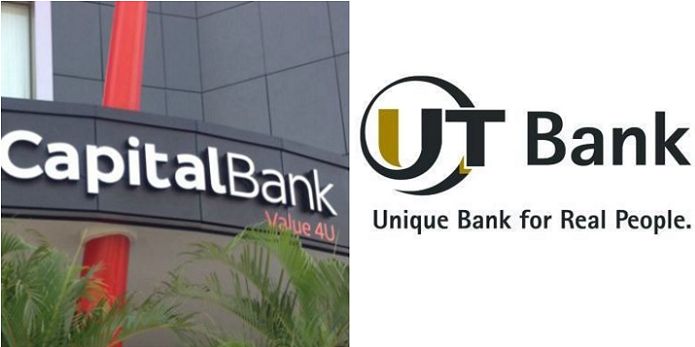
The case of UT Bank and Capital Bank; What went wrong?
It may have come as a surprise to many Ghanaians but analysts say the signs were there and the press statement from the Bank of Ghana (BoG) on August 14, 2017 put an end to all speculations and would have fetched fortunes to anyone who would have gambled on the folding up of the once prestigious UT Bank and Capital Bank, both wholly Ghanaian-owned banks.
The statement read in part, “The Bank of Ghana has approved a Purchase and Assumption transaction with GCB Bank Ltd that transfers all deposits and selected assets of UT Bank Ltd and Capital Bank Ltd to GCB Bank Ltd. The Bank of Ghana has revoked the Licences of UT Bank Ltd and Capital Bank Ltd’’. The statement continues, ‘’This action has become necessary due to severe impairment of their capital…...............The main offices and branches of UT Bank and Capital Bank will be under the control of GCB Bank”.
To a layman’s understanding, UT Bank and Capital Bank, the once vaunted wholly Ghanaian-owned banks, have collapsed and there is no shyness in saying that after the announcemen; the BoG in effect had revoked their licences.
Certainly, this does not come as good news for the banking sector, especially considering that these banks have largely been seen as seeds of entrepreneurial progress and the anchor of many businesses in Ghana, and at the heart of this unfortunate announcement is the question in capital and bold letters. What went wrong?
Before the break of dawn of August 14, 2017, UT Bank was the bank liberating both businesses and workers from economic wilderness, granting a loan in a record time of 48 hours, a strategy that made it win many awards and accrue to itself an enviable prestige in the banking industry such as Bank of the Year 2011, Best Bank IT/Electronic Banking at the Ghana Banking Awards in 2011, The most Respected Company by PriceWaterhouseCoopers and B&FT newspaper in 2012.
Capital Bank certainly had its own pride of place. In 2016, Capital Bank was adjudged the Best Growing Bank, Best Bank in Deposits & Savings at the Ghana Banking Awards and ranked eighth on the list of Ghana Club 100, all but a clear indication that those two banks were here to stay. Little did we know that the awards and credentials meant little to the survival of these banks.
Despite the assurance of BoG of financial stability as a result of its prompt intervention to protect the interest of depositors as expressed, “ The Bank of Ghana assures the public that all customers can continue normal banking business at all UT Bank and Capital Bank facilities which are now branches of GCB bank... The approval by the Bank of Ghana of this transaction is to strengthen Ghana’s banking sector, ensure financial stability and protect depositors’ funds”, the BoG failed to assure the banking community of no such future collapse of another bank in the manner we have witnessed.
It has been pointed out by some analysts that the banks saw this coming but the unwillingness of the Ghanaian business moguls to enter into merger, poor corporate governance exhibited by lack of competence by board members, lack of managerial due diligence before granting loans, all but culminated in the balance sheet of the banks that created the situation, as described by the BoG for the approval of the transaction,“excessive liabilities of the bank”.
This article is, therefore, demanding answers beyond the surface tension explanation given by the BoG. Scholars of banking and finance and astute leaders in the industry should investigate this banking nightmare to unravel the underpinnings of this unbelievable situation to serve the objective of preventing a similar situation in the future and to offer current students of banking and finance the opportunity to better appreciate this development.
The writers are students of University of Ghana pursuing MSc in Development Finance
Cedric Dzelu, cedricdzelu@gmail.com
Albertha A Adongo, albertha.adongo@yahoo.co.uk

